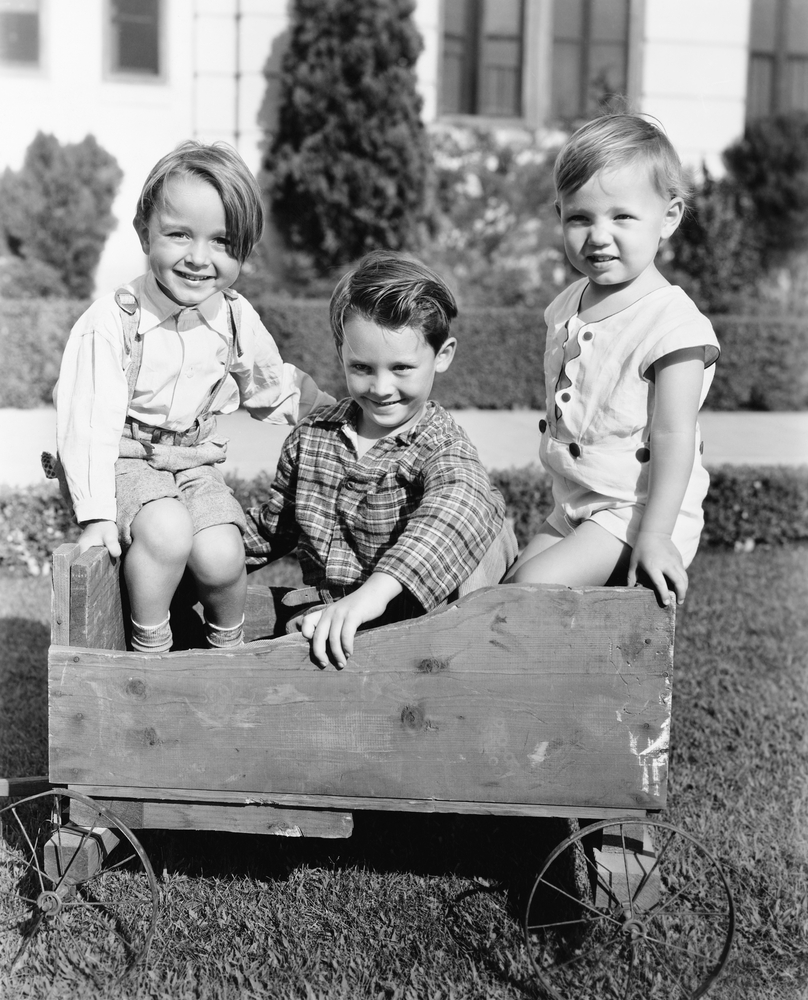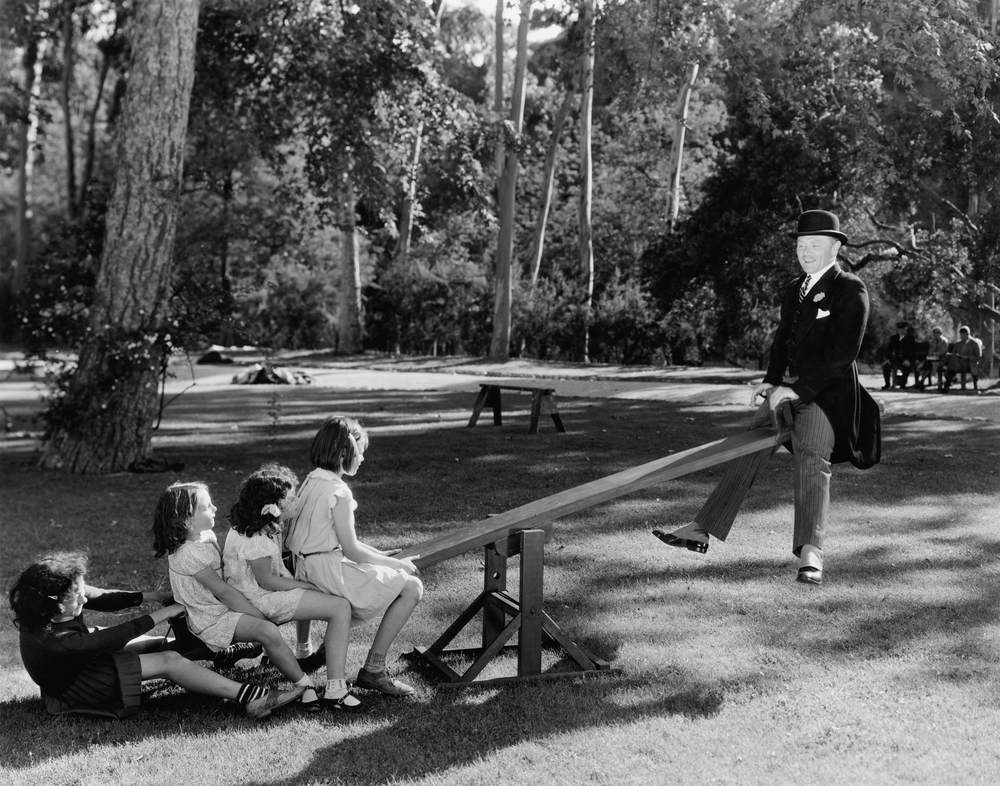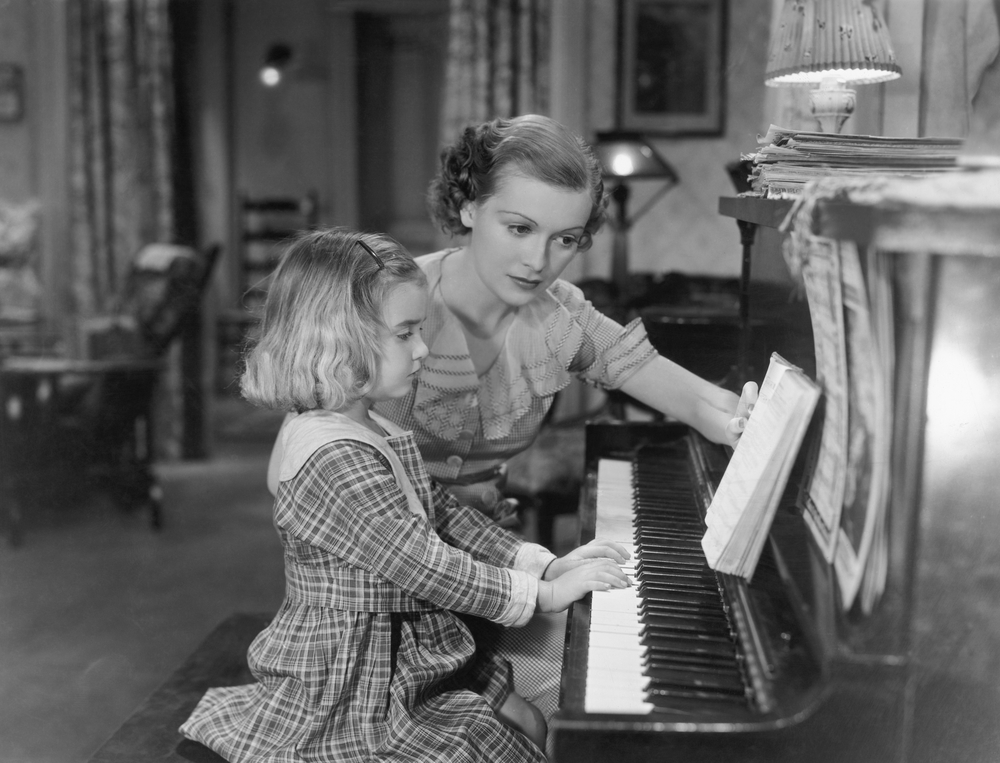California Child Homeschooling Attorney Sebastian Gibson

California Child Homeschooling Attorney Sebastian Gibson Discusses How to Legally Homeschool Your Children and Form Homeschooling Groups in California
For over 40 years, California Child Homeschooling Attorney Sebastian Gibson has been practicing law and with law degrees in California and in Britain, and experience in San Diego, Palm Desert, Newport Beach, and in London. Today California Child Homeschooling Attorney Sebastian Gibson is recognized as an authority on Homeschooling Law in California and has been named a Top Lawyer for the past 12 years in a row by the Prestigious Magazine, Palm Springs Life. In the field of Homeschooling, California Child Homeschooling Attorney Sebastian Gibson provides advice and assistance to parents throughout California.
Perhaps what most solidified homeschooling as an alternative for parents in California, was the landmark 2008 case of In Re Jonathan L. Et al., Petitioners v. The Superior Court of Los Angeles County, Cal. Ct. App., 2nd Dist., Div. 3 (2008). Judge H. Walter Croskey, of the Second District Court of Appeal in Los Angeles wrote that so long as parents declare their home to be a private school, they can continue to homeschool their children, even without credentials. Said the court, “California statutes permit homeschooling as a species of private school education.”
What California Child Homeschooling Attorney Sebastian Gibson has seen since that case was decided, has been a huge increase in the numbers of children being homeschooled. More than ever with the rash of school shootings as well as the Covid pandemic, homeschooling continues to be a path parents can take when they believe their children can be provided with a safer environment for their children and one better suited for the education they wish their children to receive.
At the height of the Covid-19 pandemic, the number of parents filing private home school affidavits doubled. Schools subsequently closed, and parents in millions of homes throughout the state, even ones who had not filed Private School Affidavits (see below for more information on these), had no other option but to homeschool their children. And contrary to what many believe or hope, it is quite likely we as a country we will be dealing with other variants of the Covid virus in the future which could cause the number of infections and deaths to again rise dramatically as they have in the past.
According to the U.S. Census Bureau’s Household Pulse Survey, on April 23, 2000, a few weeks after schools began closing, about 5% of U.S. households reported that they were home-schooling at least one of their school-age children. By fall, that number had climbed to 11%.
According to a news release from the Census Bureau, “It’s clear that in an unprecedented environment, families are seeking solutions that will reliably meet their health and safety needs, their childcare needs and the learning and socio-emotional needs of their children.”
When schools began to reopen in a limited fashion, many parents fearing the risk that their children would catch an infection when schools partially reopened without young children being given the covid vaccination, continued to homeschool their children.
During the pandemic, even charter schools filled up and began to turn students away, including in the Bay Area. For those parents who had thought a charter school could be their best option, a Private School Affidavit allowing them to homeschool was left as their only option. But that meant, there would be no ability for their children to socialize and grow emotionally with other children their age.
Some parents also found after their children attended school classes remotely during the Covid-19 pandemic, that their children had lacked an important part of their education when they were unable to socialize with other children.
With parents looking to safely educate their children and provide them with the socialization skills they were not receiving with schools closed or with Zoom classes not providing the same level of education as children received in schools, parents began to form groups of children who would study and play together at individual homes.
Recognizing the need of parents with jobs to have their children in a supervised learning environment in residential settings with some socialization available to their children as well, but with the risk of infection from other children during the pandemic, the California Department of Health not only approved what they called, for lack of better description, “Learning Pods” and “Cohorts.”
The California Department of Health then provided guidance to these learning pods of no more than 14 children for the purpose of limiting the exposure of the risk of infection from other children and from their tutors and supervising parents.
Consequently, part of this article by California Child Homeschooling Attorney Sebastian Gibson will examine how to homeschool one’s children along with other children so this part of their education of how to interact with other children is not missing from their education at this important part of their lives.

A Primer on How to Start the Homeschooling Process by California Child Homeschooling Attorney Sebastian Gibson
California is one of 12 states in which home schooling is accomplished under a private school exemption according to California Child Homeschooling Attorney Sebastian Gibson. Indeed, there are the very limited requirements to privately school legally in California.
Education Code Section 48010 requires that a child be six years old on or before September 1st for their first grade school year.
Home educators are allowed to establish a private school, based in their home, by filing a Private School Affidavit with the Superintendent of Public Instruction in California. Education Code Section 33190 requires that an affidavit be filed stating information for the current school year.
Under California law, a private school is official the minute a person states it is according to the HomeSchool Association of California. The California Department of Education has told the HomeSchool Association of California that they believe private schools are allowed to be formed after October 15th of a year. A child is thus enrolled and legally exempt from public school attendance as soon as a person has started their own private school.
The Public School Affidavit is simply a statement about one’s school on the day that a person files. The California Department of Education has further advised the HomeSchool Association of California that the purpose of the affidavit is to allow them to compile a private school directory.
While there is a specific filing period of October 1st and October 15th to file a Private School Affidavit which must be filed each year while a parent homeschools their children, online filing has been allowed after October 15th, though it would be preferable to file the affidavit during the filing period in case this late filing allowance is ever disallowed.
The state of California does not approve, evaluate, recognize, endorse or supervise a private school. The affidavit is simply a device that enables the Department of Education to keep track of the number of school children in California and private schools.
Basically, the rest of the applicable Education Code Sections with regard to these private schools simply require that the instructors be capable of teaching (as determined by the private school administrator, the parent), the instruction must be in English, the instructions must be in certain branches of study (those required in public schools), certain pupil and school records must be on file, and certain Health Department forms must be on file. Among those records are records of immunization a copy of the filed affidavit, attendance records, a record of the educational qualifications of the faculty, the courses of study offered, and a criminal record summary.
Education Code Section 48222 requires teaching in English, and requires attendance to be kept. Teachers at private schools do not need to hold state teaching credentials. California Education Code Section 48222 simply requires that the teachers be “capable of teaching.” The California Attorney General has interpreted this to mean that teachers in private schools should meet standards comparable to those required for public school teachers in similar positions, excepting only the credentials (3 Ops. Cal. Atty. Gen. 193).
Education Code Section 48224 states that children not attending a private school but who are being taught by a private tutor are also exempted from attending public schools if the tutor has a valid state credential for the grade taught.
A Health Exam Form or Waiver for children entering 1st Grade is needed pursuant to California Health and Safety Code Section 124085.
Education Code Section 48200 requires children between the ages of 6 and 18 to be subject to full-time education. Education Code Section 51210 requires certain subjects to be taught in grades 1 through 6.
Education Code Section 48222 exempts homeschooled children in a private school from the requirements of attendance at a public full-time day school.

Group Homeschooling in California, A Further Consideration for Parents which California Child Homeschooling Attorney Sebastian Gibson Can Be of Assistance
If a person takes the time to research homeschooling in California, that person will see that there are many names for the groups of children who come together in study groups to learn at private residences. Among the many descriptions for this type of study are, among others, Learning Pods and Covid Pods, Cohorts, License-Exempt Child Care, Homeschooling Co-Ops or Cooperatives, Study Groups, Meet-Ups, Local Homeschool Groups, Religious Homeschooling, Homeschooling Networks, and could additionally be described as Social Groups, Special Needs Groups, Clubs, and so on.
Some of these groups of children coming together are faith-based, while others are more inclusive or secular in nature. Regardless of the type of homeschooling co-op or study group the children’s parents choose, there are clearly many benefits to be had from being part of a homeschool social group, as one might imagine. The loneliness and fears children have suffered over the past years due to the pandemic and school closings, are not something any but the very oldest adults ever had to suffer when we were children.
There is obviously a great deal of overlap among these different titles for groups of children being brought together by their parents with a common goal to provide a better and safer education for their children in these uncertain times with school shootings and the pandemic.
Objectives in Group Homeschooling When A Child Needs Social Interaction
Some objectives of Group Homeschooling are these: 1) To provide opportunities for children to develop their social skills and to learn how to function in a group environment (academic in nature or otherwise) which can even be augmented by a trained behavioral therapist to assist children with training them in such skills alongside other children; 2) To give religious children the opportunity to practice and strengthen their faith through interaction with other religious children, if that is an objective of a child’s parents; and 3) For children with special needs, such as autistic children, to learn simple life skills in the company of other special needs children when that is an additional objective.

Avoiding An Objection That Group Homeschooling Constitutes Creating a School
When other children in a group homeschooling situation are full-time students elsewhere who come to one child’s residence simply for extra study time and socializing, the original child’s parents should not be responsible for the homeschooling of the additional children coming to socialize.
Each of the additional children should be either enrolled in a charter school, a public school independent study program, or have filed a Private School Affidavit with the State of California to be homeschooled at their own homes, just as the parent of the first child has done to homeschool their own children.
Unlike a school where attendance is required, not all the children in a homeschooling group might or need to come every day or at the same times, as they each likely have classes and educational or family commitments elsewhere on varying days and times. Indeed, there should be no commitment or expectation that they come for any specified amount of time or on specific days unlike a public school. The days and times that are available to the additional kids to come can be those on which the parent homeowner has made their home available to other children.
The parents of the additional children can take turns volunteering at the location of the homeschooling group, unlike a school. As examples of how the additional parents can help out, they might help by supervising social time, assist in logistical tasks, help in planning and managing activities, and provide the children with additional learning experiences, even as others prepare meals or help to supervise play time. However, the parent of the original homeschooled child should be present at all times and at no time should the children be left alone in the presence of any other adult, although other adults may be present with the original child’s parent.
The homeschooling group should not be one where fees are charged or where the homeschooling group makes a profit from any voluntary contributions of food or money by the parents of the additional children.
California Law Explicitly Defines What Constitutes A School As Shown by California Child Homeschooling Attorney Sebastian Gibson
a. Public School Definition
The California Department of Education (CDE) defines a public school as a kindergarten through grade twelve and/or adult educational institution that:
• Is supported with public funds.
• Is authorized by action of and operated under the oversight of a publicly constituted local or state educational agency.
• Provides educational services to all students who are enrolled.
• Has an appropriately credentialed teacher (or teachers) who provides instruction.
• Has at least one appropriately credentialed administrator, usually a principal, who is responsible for all aspects of school administration including supervision and evaluation of staff, fiscal responsibility, student discipline and safety, supervision and evaluation of curriculum, and assessment of academic achievement and school accountability.
• Administers California statewide assessments to its students at the required grade levels.
• Has an administrator, usually a principal, with access to and responsibility for maintaining official student records for all enrolled students.
• With the exception of charter schools: Implements a curriculum that fully meets state requirements as specified in the California Education Code relating to required courses of study.
• Is non-sectarian.
• With the exception of charter schools: Contains a budget structure that is consistent with the budget structure of schools operated by the authorizing agency.
• Is based in one or more buildings that are “Field Act” compliant,* unless exempt
In determining whether a given entity is a school or a program, the CDE considers the following questions:
• Is the educational component of the entity secondary to its primary purpose, which is other than education?
• Do students, who are enrolled in the entity, remain members of the school that referred them?
• Do all students enroll on a part-time basis?
If the answer to any of those three questions is yes: This entity is not a school, and it may be a program.
Next, the CDE considers these questions:
• Except for State Special Schools, can the entity, if it accommodates grade twelve students, grant a diploma to its graduates?
• Do the students have full access to all of the facilities and amenities of the entity?
If the answer to either of those two questions is no: This entity is not a school, and it may be a program.
b. Private School Definition
The California Department of Education defines a private school in this manner:
“A private school is a private business or nonprofit entity that offers or
conducts full-time instruction with a full complement of subjects at the
elementary, middle, or high school level. Private schools function out-
side the jurisdiction of the California Department of Education (CDE)
and most state education regulations. Private schools do not participate
in California’s educational accountability system and are directly accountable
to students and their parents or guardians, based on the terms of the private
school enrollment contract.”

California Law Encourages Group Homeschooling in a Residential Setting As Shown by California Child Homeschooling Attorney Sebastian Gibson
The California Department of Public Health has specifically recognized, among other classifications of groups of children studying together in a residential setting, “Cohorts,” “non profits,” “licensed and license-exempt child care settings,” “organized and supervised care environments,” and other classifications and in fact during Covid, set forth some guidance for these variously formed groups of children studying together to limit the transmission of Covid. The recognition by the California Department of Public Health is instructive because it recognizes the many varied ways in which children may study and play together in residential settings.
The California Department of Public Health defines a “Cohort” as a stable group of no more than 14 children or youth and no more than two supervising adults in a supervising environment in which supervising adults and children stay together for all activities (however the cohort may be divided into smaller groups). The guidance also states that specialized services e.g. behavioral therapy can be provided to a child by a support services provider that is not part of the child’s learning group.
While numbers of Covid infections are currently declining, medical experts also say it will be a long time, and perhaps never when Covid is completely eradicated given the propensity of the virus to mutate. Such guidance would thus be likely to be reiterated should infection numbers again rise as they are in some areas even today where safety measures have been relaxed.

California Law Also Specifically Permits Licensed Day Care Activities in a Residential Setting
It is also worth examining the situation in which a homeowner is running a licensed day care from his or her home.
Under California law, even “family child care homes,” which would involve money
changing hands for supervision of children from other families, are a residential use of property, not a business use. It follows that any type of child care that is similar in nature, and no larger in size than 14 students, is also a residential use of property, and not a business use, whether they are 14 or less children, or children and grand-children from a single family or from multiple families. Any of these situations are, by law, considered to be a residential use of property and not a business use.
California Health and Safety Code Section 1597.30 explains why child day care in residential settings is essential. In part, the section states:
The Legislature finds and declares all of the following:
(a) The Legislature has a responsibility to ensure the health and safety of children in family homes that provide daycare.
(b) There is an extreme shortage of regulated family daycare homes in California, and the number has decreased significantly since 2008.
( c ) There continues to be a growing need for child daycare facilities due to the increased number of working parents. Parents need childcare so they can work and attend school, and so their children can thrive.
(d) Many parents prefer childcare located in their neighborhoods in family homes.
(e) There should be a variety of childcare settings, including regulated family daycare homes, as suitable choices for parents.
California Health and Safety Code Section 1597 further explains the reasoning behind the law in California specifically encouraging child day care in a residential setting as follows and further provides that regulations promulgated to prohibit or restrict the use of a family daycare home are prohibited:
“(a) It is the intent of the Legislature that family daycare homes for children should be situated in normal residential surroundings so as to give children the home environment that is conducive to healthy and safe development. It is the public policy of this state to provide children in a family daycare home the same home environment as provided in a traditional home setting.”
“(b) The Legislature declares this policy to be of statewide concern with the purpose of occupying the field. This act, the state building code, and the fire code, and regulations promulgated pursuant to those provisions, shall preempt local laws, regulations, and rules governing the use and occupancy of family daycare homes. Local laws, regulations, or rules shall not directly or indirectly prohibit or restrict the use of a facility as a family daycare home, including, but not limited to, precluding the operation of a family daycare home.”
Case law follows the provisions of this statute. Essentially, every restriction or prohibition entered into, whether by way of covenant, condition upon use or occupancy, or upon transfer of title to real property, which restricts or prohibits directly, or indirectly limits, the acquisition, use, or occupancy of such property for a family day care home for children is void.
California Health and Safety Code Section 1597.43 (and case law which follows later in this Opinion Letter) have addressed the issue of vehicles and traffic. Health and Safety Code Section 1597.43 provides as follows:
“(a) Family day care homes operated under the standards of state law constitute accessory uses of residentially zoned and occupied properties and do not fundamentally alter the nature of the underlying residential uses. Family day care homes draw clients and vehicles to their sites during a limited time of day and do not require the attendance of a large number of employees and equipment.”
If there is any doubt that a family day care home in a residentially zoned area is a residential use of property, Section 1597.42 makes it explicitly clear that it is a residential use:
“The use of a home as a family daycare home, operated under the standards of state law, in a residentially zoned area shall be considered a residential use of property for the purposes of all local ordinances, regulations, and rules, and shall not fundamentally alter the nature of the underlying residential use.”

If You Need Assistance in Legally Homeschooling Your Children, Call California Child Homeschooling Attorney Sebastian Gibson
As discussed, there are numerous ways and manners in which families have come together in the State of California to share the advantages of group learning and socializing of their homeschooled children. Even under the most formal method of doing so, child day care of 14 or less children in a home, the law is clear that such an activity is a residential use of property and perfectly legal in a residential setting.
Clearly child care is permitted by law at a residence in a residential setting in California in the view of California Child Homeschooling Attorney Sebastian Gibson. Likewise, homeschooling is completely legal in California as is the right of parents of homeschooled children to come together in pods, cohorts, co-ops, meet-ups, study groups, or other descriptions of their study groups at a home.
With over 45 years of experience, California Child Homeschooling Attorney has been called “Brilliant” and “A Legend.” With law degrees both in California and in Britain, he has focused his legal career in helping people in various endeavors including homeschooling as well as in entertainment law from his offices in California.
California Child Homeschooling Lawyer Sebastian Gibson has offices in Palm Desert and Newport Beach and provides advice to parents seeking to homeschool children throughout California. If you need a California attorney experienced in this field, call or email Sebastian Gibson for assistance and advice.




